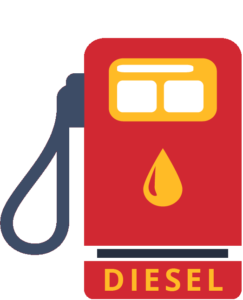If you are new to diesel vehicles, you might wonder how regular maintenance for your diesel car or truck differs from conventional gasoline vehicles. Even if you have driven a diesel for a while, you might not be sure which information to believe with regard to proper diesel maintenance.
One of the most common diesel maintenance topics out there is how to clean fuel injectors. For car owners, the question is when to use fuel injector cleaner. Is it safe? Does it really work?
This is a major consideration for diesel owners. When your fuel injectors are working properly, you get the benefit of an efficient, powerful machine. When they aren’t running right, which usually means they are clogged, your engine performance suffers. Clogged fuel injectors will lead to lower and inconsistent RPMs, increased emissions, and decreased fuel efficiency.
Fuel injectors are controlled by your engine’s computer system. When you push the gas pedal, the computer tells your fuel injectors exactly how much fuel to spray into the combustion chamber in order to generate the right amount of power needed at that precise moment. When your injectors are clogged, they have to work harder. This means they don’t spray the right amount of fuel, and they don’t completely atomize the fuel as they should.
What Fuel Injector Cleaner Does
To keep your diesel engine running smoothly, it is advisable to use diesel engine cleaner on a regular basis. Your fuel filter is designed to keep larger debris from entering the injection system, but the fuel will still contain particulates that can build up over time and affect your engine’s performance.
Fuel injector cleaner breaks down the particulates built up in your fuel system. The fuel injectors are designed to turn liquid fuel into a fine, partially-atomized spray, so they need to be as clean of impurities as possible. The good news is, you can do this while you drive. Cleaner added to the fuel tank breaks down impurities as it runs through the fuel system.
How to Use Fuel Injector Cleaner
Using fuel injector cleaner is easy. You simply pour it into the fuel tank. Just make sure to follow all manufacturer instructions, only use it in well-ventilated areas, and avoid getting any on your eyes and skin. The best way to apply it is to pour it into a low fuel tank just before you fill up.
- First, make sure you get a cleaner specifically designed for your diesel engine.
- The next time your tank is low, head to the gas station and add the injector cleaner first.
- When you add the fuel next, this will allow the cleaner to mix thoroughly with the fuel.
- If your tank is low, you can add the entire bottle of cleaner, but make sure you follow the instructions on the bottle.
- As you drive, the cleaner will run through your fuel system and clean it as it processes through with the fuel.
Adding fuel injector cleaner on a regular basis can prevent excessive buildup and help keep your engine running smoothly. However, if your engine already has heavy buildup in the fuel system, using a cleaner will likely not be enough. In this case, you will likely need to remove the injectors, take them apart, and clean them thoroughly.
To keep heavy buildup out of your fuel injection system, use a fuel injection cleaner on a regular basis. It is safe to add it to your tank every 3,000 to 5,000 miles and is an important part of your vehicle maintenance.


